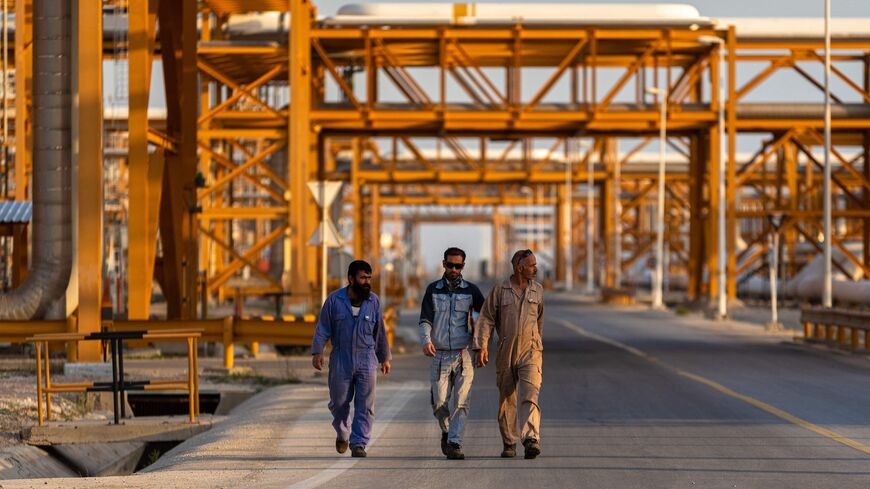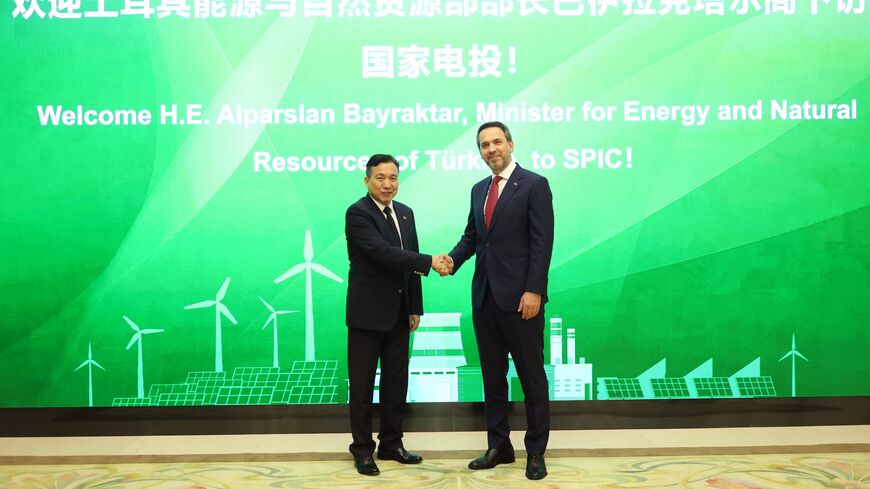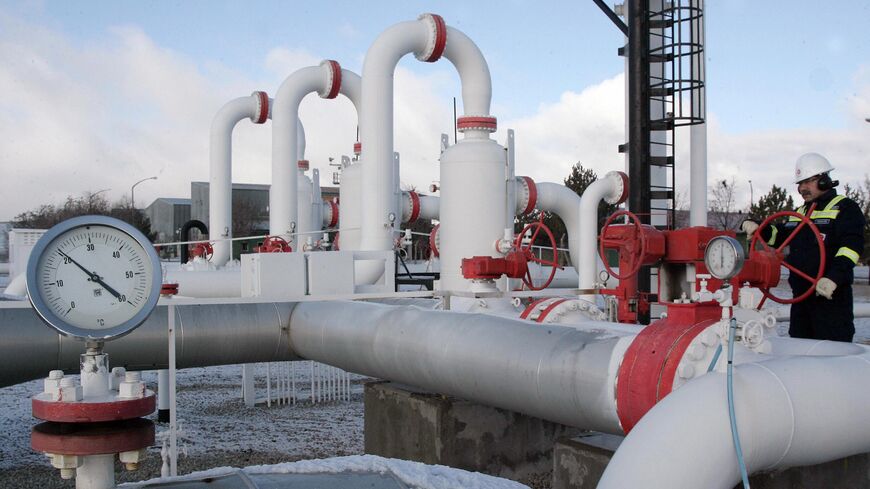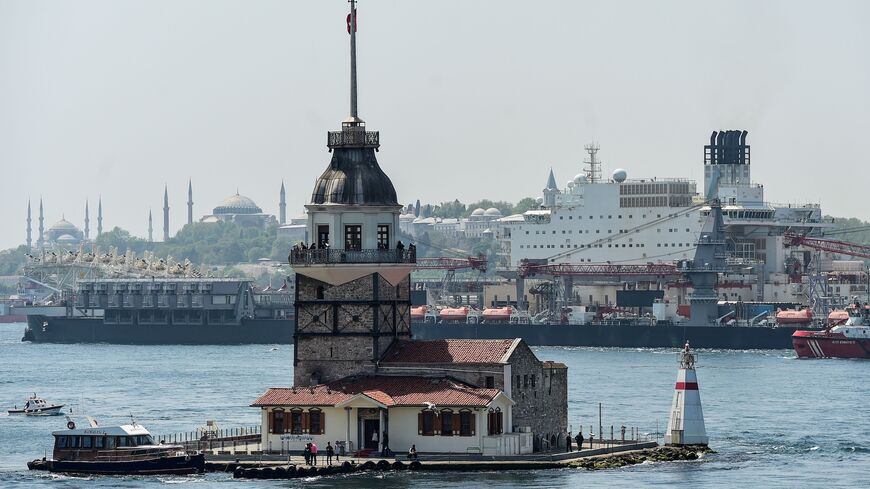Turkey’s BOTAS signs $1.1B long-term LNG deal with ExxonMobil
Turkey and ExxonMobil have signed a major liquified natural gas deal as Ankara looks to diversify its energy sources.

The Turkish Petroleum Pipeline Corporation (BOTAS) and US energy giant ExxonMobil have signed a deal for liquified natural gas believed to be worth more than $1 billion, Turkish Energy and Natural Resources Minister Alparslan Bayraktar said Wednesday.
Bayraktar, who was present at the signing ceremony between the two energy firms on Wednesday, wrote on the X platform, “With this agreement, which is planned to be long-term, we will take another step in diversifying our resources,” and highlighted the existing LNG trade between Turkey and the United States.
“We are among the few countries in the world with our gasification capacity,” he said. “We will continue to contribute to the energy supply security of both our country and our region.”
Al-Monitor has contacted ExxonMobil for comment.
Bayraktar met with US Secretary of Energy Jennifer Granholm in Washington, where the pair spoke on topics including natural gas, renewable energy, energy efficiency, nuclear energy and critical minerals. The Turkish minister also met with US Senator Joe Manchin, chairman of the Energy and Natural Resources Committee.
Vaşington’da ABD Enerji Bakanı Sayın Jennifer Granholm ile bir araya geldik.
— Alparslan Bayraktar (@aBayraktar1) May 9, 2024
Ülkelerimiz arasında Enerji ve İklim Diyaloğu Programı’nı başlatarak ilk toplantısını da gerçekleştirmiş olduk.
Kamu ve özel sektör temsilcilerini buluşturacak programın tüm paydaşlar için verimli bir… pic.twitter.com/Hnv6MM7Rm0
Last month, Bayraktar told the Financial Times that Turkey was in talks with ExxonMobil for a major LNG deal that could last 10 years. He said that the deal would be for 2.5 million metric tons of LNG, valued around $1.1 billion.
Turkey, which imports almost all of its natural gas, is looking to diversify its energy sources, Bayraktar said in the interview.
Moscow has been a popular energy partner for Ankara, especially since Russia invaded Ukraine in February 2022. Following the invasion, the European Union sanctioned Russia, leading it to sell its oil and gas to other countries at a discount. Ankara did not place sanctions on Moscow and Reuters reported in December that Turkey spent around $2 billion on energy bills in 2023, largely on cheap Russian energy.
In 2022, Russia accounted for 39% of Turkey's natural gas imports, followed by Iran at 17%, Azerbaijan at 16% and the United States at 10%. Turkey also imports LNG from Algeria, Nigeria, Qatar and the United States.
Turkey is looking to become a major gas hub for the region as well as a major exporter of the LNG it produces. The country has seven international gas pipelines and five LNG facilities, including three floating storage and regasification units and two underground natural gas storage facilities.
The ExxonMobil deal comes as Ankara-Washington ties improve. In January 2023, Turkey dropped its veto on Sweden joining the NATO military alliance and the United States in January agreed to sell Turkey $23 billion worth of F-16s. Turkey also wants to produce the military jets on its own soil. However, relations remain tense, and last month Erdogan postponed a May 9 visit to Washington. While there was no official statement on the reason for the postponement, sources suggested to Al-Monitor that the delay partly stemmed from a lack of clarity from the US side on the visit.








